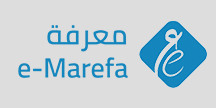The education language and its influence on the pupils incompetence in text formation (The third class of the basic stage) as an example
DOI:
https://doi.org/10.21271/zjhs.25.6.4Keywords:
Applied linguistics, ompetence, pupils, influence on the pupilsAbstract
The pupils incompetence in text writing lesson has lots of causes, text formation lesson is not like the dictation lesson in which the sentences to be written without paying attention to the meaning and status of the words and good marks will be obtained in.
A proper writing is the result of thinking and benefiting from imagination and the mental activities in this lesson, in addition to writing the words correctly, the pupils should have a good command of syntax and have the ability of describing the visible matters and their inner thoughts. To strengthen their competence; the pupils should be given exercises in their schools.
In this research, we have attempted to showcase the reasons behind the pupils incompetence; we should answer some questions and for this purpose we have taken the opinion of the pupils, teachers and the parents of the pupils. The research has been conducted through a questionnaire that has been distributed over them and the collected data and answers have been analyzed later.
The results show that the incompetence problem among the pupils of the third stage of the basic study in text formation lesson can be summarized in four reason: 1- The word and sentence status problem. 2- The practical problem. 3- The problem related to the teaching method. 4- The problem related to directing the pupils and choosing the topic.
Downloads
Published
How to Cite
Issue
Section
License
Copyright (c) 2021 Copyright will be assigned automatically to Zanco Journal of Humanity Sciences when this is published.

This work is licensed under a Creative Commons Attribution-NonCommercial-ShareAlike 4.0 International License.
Except where otherwise noted, content on this site is licenced
under a Creative Commons Attribution License 4.0 (CC BY- 4.0)









